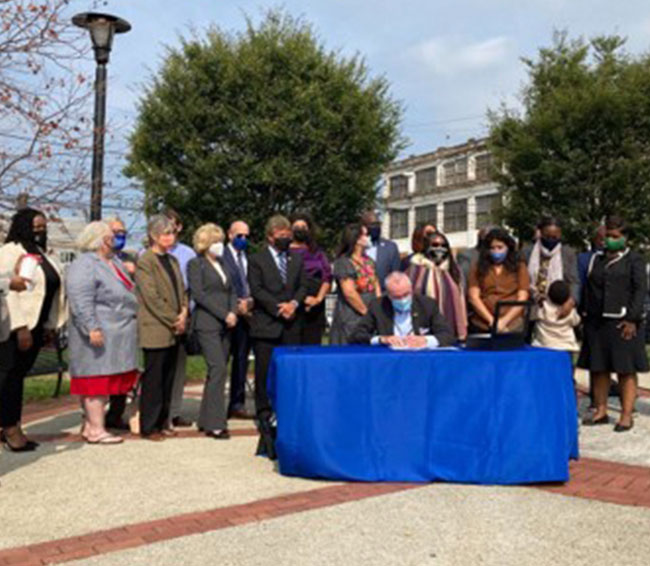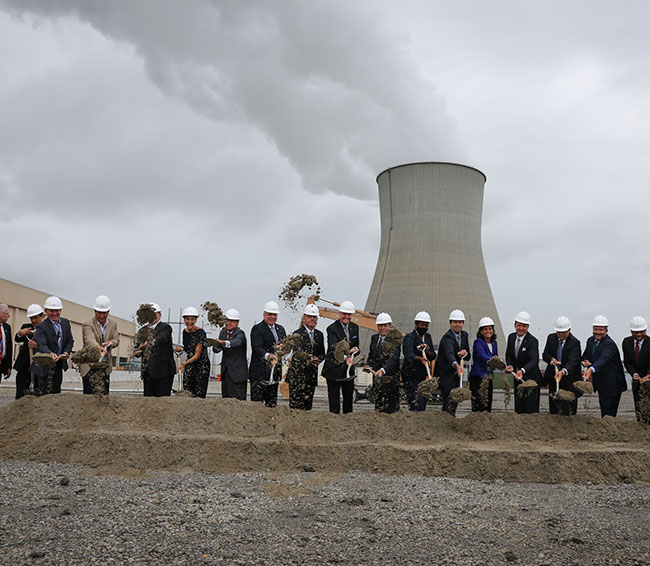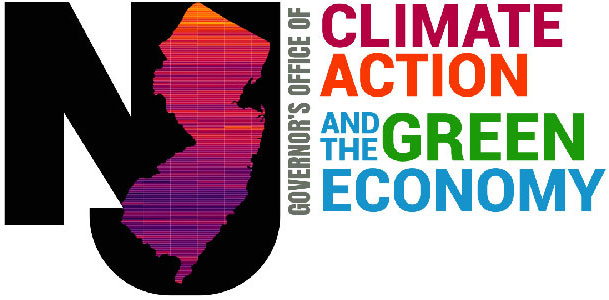Office of Climate Action and the Green Economy
Clean Energy and Equity
Environmental Justice Advisory Council

- The Environmental Justice Advisory Council (EJAC) is an advisory body to the NJ Department of Environmental Protection (DEP) that is committed to the basic tenet that all communities, regardless of their racial, ethnic, or economic composition, are entitled to equal protection from the consequences of environmental hazards.
- The EJAC provides a forum for discussions about integrating Environmental Justice into DEP's programs, policies, and activities. The EJAC provides guidance, builds DEP's capacity, and improves its support of the State’s Environmental Justice constituents and stakeholders.
- The DEP Commissioner appoints EJAC members who represent broad bases of constituents and geography.
- The four EJAC working groups are:
- Environmental Education and Communications
- Air
- Land
- Water
Environmental Justice Interagency Council

- Under Governor Murphy’s Executive Order 23, the DEP created the Environmental Justice Advisory Council (EJIC) to help the Executive Branch adopt Environmental Justice principles and create action plans.
- The Council is tasked with providing a framework for Executive Branch agencies and departments on how to consider environmental and health impacts of their programs and policies in overburdened communities.
- The Council helps State agencies and departments implement the Furthering the Promise Guidance Document, which is a guide that will result in direct engagement with our partners and residents in environmental justice communities to implement needed remedies, foster creative solutions, ensure the appropriateness of our response, and identify and leverage all available resources, from the federal, state and local levels.
Community Solar

- Governor Murphy’s signage of the 2018 Clean Energy Act mandated the Board of Public Utilities (BPU) create New Jersey’s first Community Solar Pilot Program.
- The Program was established to ensure that low- and moderate-income (LMI) residents reap the benefits of renewable energy, especially folks who may rent their home, live in a multi-family building, or do not have the financial resources to pay for solar.
- The BPU launched the Community Solar pilot program in 2019 and has awarded incentives to 150 projects representing almost 243 megawatts of solar generation. When fully developed, the Program’s already-approved projects will create the cumulative capacity to power over 45,000 households and 24,000 LMI subscribers.
New Jersey Wind Port Diversity & Local Engagement Advisory Committee

- The State of New Jersey is committed to constructing the New Jersey Wind Port using union labor and requires developers and contractors to pay prevailing wage. The State is also committed to setting a new standard for inclusion of women- and minority-owned businesses and subcontractors during construction of the New Jersey Wind Port.
- The New Jersey Wind Port Diversity and Local Engagement Advisory Committee meet regularly to ensure progress toward diversity and inclusion goals as well as the continued engagement of local South Jersey businesses and women-, minority-, and veteran-owned businesses in the wind port construction.
- The Diversity and Local Engagement Advisory Committee’s goals are for the port construction are for at least 25 percent of subcontractors be small businesses and that at least 15 percent are women-, minority-, or veteran- owned. The project also includes worker diversity goals of 18 percent people of color and 6.9 percent women.
- The United Building Trades Council of Southern New Jersey AFL-CIO and AECOM-Tishman signed a project labor agreement to commit to the Administration’s diversity and inclusion subcontractor goals.
Back
to top
 Official Site of The State of New Jersey
Official Site of The State of New Jersey